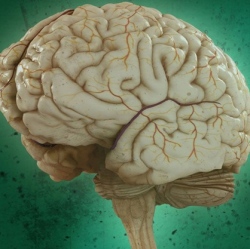
A simple test that measures how fast people walk and whether they have any cognitive complaints can predict the likelihood of developing dementia, according to a new study. The study found that nearly one in 10 met the criteria for pre-dementia based on this simple test.
Those who tested positive for pre-dementia were twice as likely to develop dementia within 12 years, according to researchers at the Albert Einstein College of Medicine of Yeshiva University and Montefiore Medical Center in the Bronx. The test diagnoses motoric cognitive risk syndrome (MCR). Testing for the newly described syndrome involves measuring gait speed, our manner of walking, as well as asking a few simple questions about a patient’s cognitive abilities, both of which take just seconds, the researchers explained.
Because the test doesn’t rely on technology, it can be easily done in a clinical setting, allowing a diagnosis in the early stages of dementia, according to the researchers. Early diagnosis is critical because it allows time to identify and possibly treat the underlying causes of the disease, which may delay or even prevent the onset of dementia in some cases, researchers noted.
“In many clinical and community settings, people don’t have access to the sophisticated tests, biomarker assays, cognitive tests or neuroimaging studies, used to diagnose people at risk for developing dementia,” said Joe Verghese, M.B.B.S., a professor in the Saul R. Korey Department of Neurology and of medicine at Einstein and chief of geriatrics at Einstein and Montefiore.
